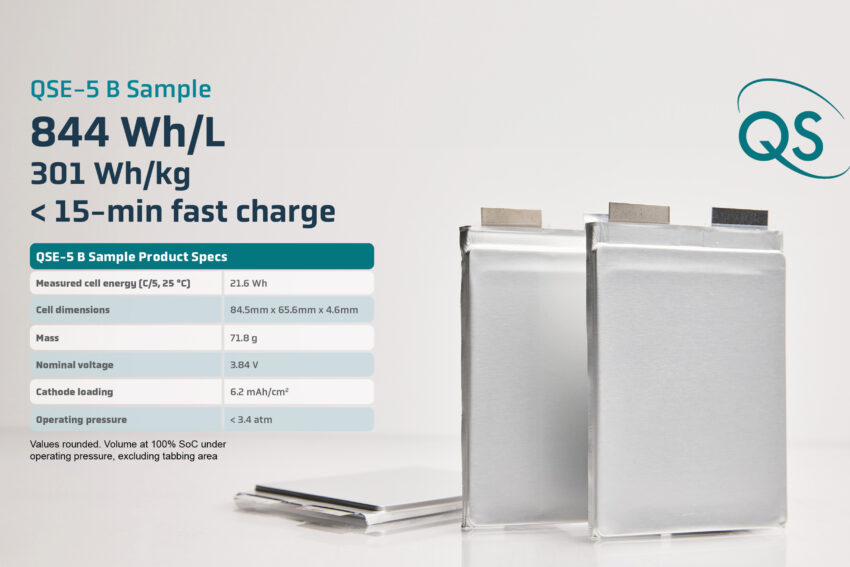QuantumScape, a solid state battery developer with backing from Bill Gates and the Volkswagen Group, says its high density cells are now bring shipped in low volume for testing by one or more automotive customers.

The California-based company didn’t identify its customer or customers, but its major investors include the Volkswagen Group, which owns the Audi, Porsche, Bentley, Lamborghini, VW, Seat and Skoda brands.
QuantumScape’s “B’ series sample cells have storage capacity of more than 800 watt-hours per liter – more than twice the capacity of the average liquid-electrolyte lithium-ion EV battery cell.
The company said the solid state cells are capable of of DC fast-charging from 90% depleted to 80% replenished in under 15 minutes, versus 30 minutes for the average EV today, although some with high-voltage electrical architecture, such as Kia, Hyundai and Porsche EVs, can recharge from 10% to 80% in 18-25 minutes in perfect conditions.
Solid state batteries could be a game changer for EVs. They promise safer, smaller and more energy-dense power storage that would enable EV makers to offer more range at less cost than possible now.
They are called solid state because their electrolyte – the component that allows charged particles, or ions, to shuttle back and forth between the battery electrodes – is made of solid material. The lithium-ion batteries in use today use highly flammable liquid electrolytes that can cause fierce fires if damaged in a crash and that require slower charging rates than solid-state in order to avoid overheating.
QuantumScape isn’t the only developer of solid state batteries but appears to be farther ahead that some. The company has said it is aiming for high-volume production sometime in 2025. High volume production of test cells usually is called for to accommodate on-road testing by automakers.
BMW, Ford, General Motors, Honda, Hyundai, Mercedes-Benz, Nissan, Stellantis and Toyota all are working with various battery development partners on solid state batteries. Toyota has targeted 2027 or 2028 for release of commercial quality battery packs, Nissan has announced a 2028 goal for mass production and Honda has set a 2030 goal for an initial commercial quality product.
